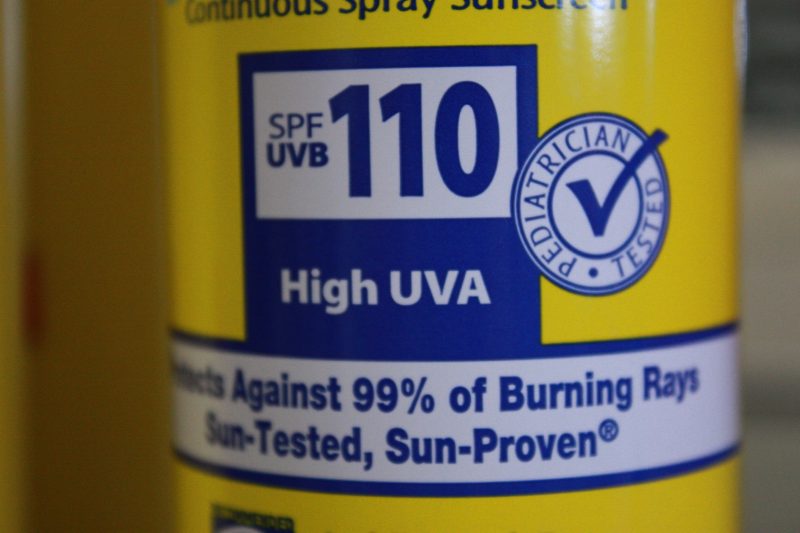Nearly 40% of top-selling sunscreens don’t meet the American Academy of Dermatology’s criteria, according to a new study.
The research found that popular products from well known brands such as Neutrogena and Eucerin fell short of the academy’s sunscreen recommendations due to their lack of water resistance.
Dermatologists “are often asked to recommend sunscreens, and we wanted to know what consumers prefer,” said lead study author Dr. Steve Xu. “This way, we are suggesting popular products they will actually use that will protect them.”
The academy recommends that everyone use sunscreen that offers broad-spectrum protection (against UVA and UVB rays), has a Sun Protection Factor (SPF) of 30 or higher and is water-resistant.
Two industry groups urged caution about the research. “This is not an important finding since not all effective sunscreens must be water-resistant. Many consumers looking for daily use product may prefer sunscreens without this attribute, and it is not critical for the sunscreen to be effective,” the Personal Care Products Council and the Consumer Healthcare Products Association said in a statement.
The 65 top-rated sunscreens identified in the new research were on the top-selling list on Amazon.com as of December and were selected using a number of factors, including customer reviews. The researchers’ goal was to identify high-performing products that are affordable and popular, in order to encourage adherence to sunscreen use.
“While it is always good to assess consumers’ attitudes, using Amazon.com as the universe of sunscreen purchasers is problematic,” said David J. Leffell, a professor of dermatology at Yale University who was not involved in the research. “There were well-known brands not listed in the top tier or in the bottom tier, suggesting that there may be a self-selection by the type of people who buy sunscreen at Amazon.”
Sunscreen purchases tend to be influenced by a number of factors, including cosmetic applicability and marketing claims. In top comments for many products analyzed in the study, consumers cited ratings from the Environmental Working Group, a nonprofit research organization, for their purchasing decisions surrounding product safety.
Both Leffell and Xu were surprised to learn that the group is more influential than dermatologists. But neither the organization nor dermatologists appeared to have much impact on consumers’ choices.
“So that begs the question: Where are consumers getting their information about sunscreen? That might be a more worthwhile study to pursue using a large consumer database,” Leffell said.
Xu, a resident in dermatology at Northwestern University, noted that rankings from the Environmental Working Group and the product evaluation magazine Consumer Reports truly do influence some consumers.
“The label ‘dermatologist recommended’ doesn’t hold as much weight when it’s used by nearly every product,” Xu stated. “When patients ask me what sunscreen to use, I don’t recommend a specific brand, whereas EWG and Consumer Reports do.”
“There’s definitely an impetus for us to understand these external grading systems so we can counsel our patients better,” Xu said.
Just because a product doesn’t meet the American Academy of Dermatology’s guidelines doesn’t mean you should stop using it, the Personal Care Products Council and the Consumer Healthcare Products Association urged. “Consumers should not take these results to mean products are not effective as claimed,” the groups said.
This study was published July 6 in the journal JAMA Dermatology.
